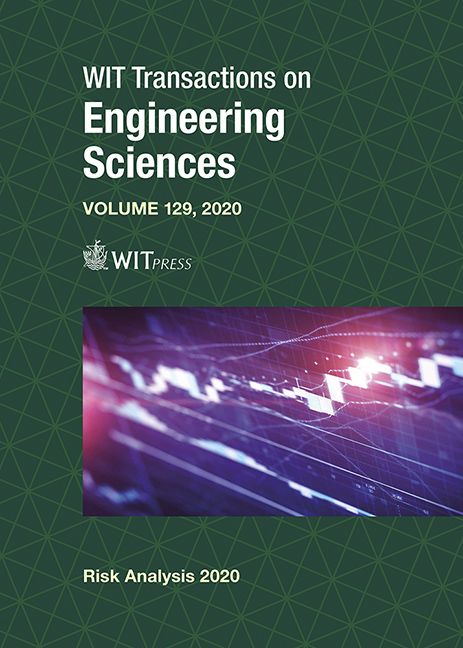IMPROVING DISASTER RESPONSE PROCESSES USING KEYWORDS SPECIFICALLY FOR EARTHQUAKES
Price
Free (open access)
Transaction
Volume
129
Pages
12
Page Range
169 - 180
Published
2020
Size
806 kb
Paper DOI
10.2495/RISK200151
Copyright
WIT Press
Author(s)
JAEHWANG AHN, YUONGJE CHOI, BYUNGSIK KIM, JAEEUNG YI
Abstract
As Korean society has become more advanced, recent disasters have become more complex, especially when they occur simultaneously with natural disasters. As part of the efforts to cope effectively with a diverse range of disasters, the efficiency of disaster response operations has been reconsidered and ways to improve existing disaster management processes have been investigated. Currently, disaster operations in South Korea are carried out in accordance with type-specific disaster manuals. Although disaster management based on manuals can guarantee clarity and legitimacy, limitations include poor reporting and feedback during disaster operations, difficulty disseminating disaster information, and ineffective training in disaster prevention and preparedness. To overcome these limitations, this study sought to effectively improve disaster services by synthesizing disaster information, which has become much more detailed and accessible due to the development of information technology, with disaster management processes. The research process was as follows: (1) Collect disaster-related keywords for earthquakes in Korea, which have recently become an issue; (2) Evaluate the suitability of the collected disaster-related keywords by conducting a survey of individuals in charge of disaster operations and those in charge of disaster information; (3) Use the results of the survey to associate the disaster-related keywords with the individual disaster management stages; (4) Develop a disaster operation process based on a keyword matrix; and (5) Present a disaster support system model that can effectively express the link between the disaster management stages and disaster-related keywords. This system enables those in charge of disaster response operations to construct a system model for disaster service support that effectively accesses disaster-related keywords that are collected and analysed based on various disaster service characteristics.
Keywords
disaster management, South Korea, disaster-related keyword, earthquake, keyword matrix, disaster support system





